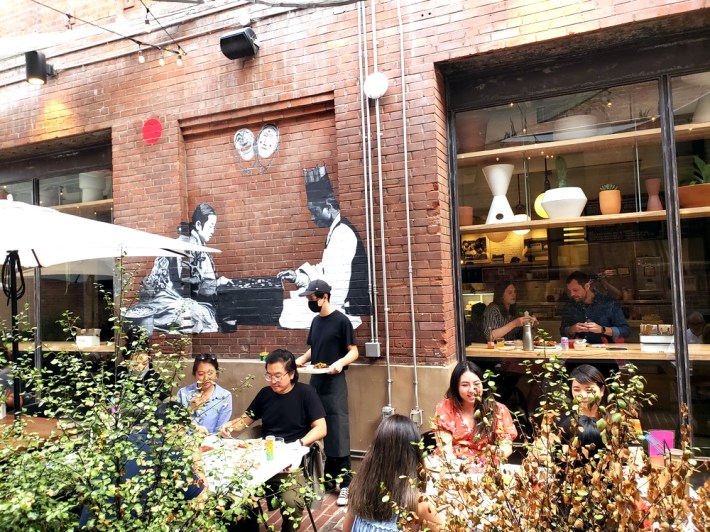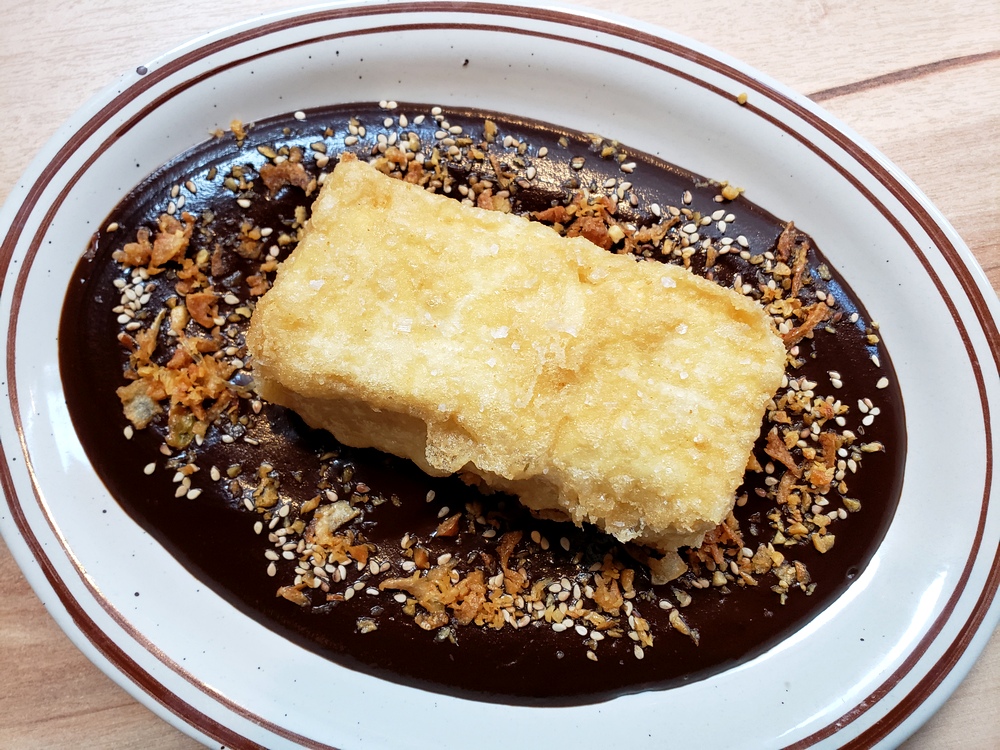One of the countless pleasures of eating a complex mole is attempting to discern the individual components that shape the dish’s full mosaic.
Like every fresh listen of a favorite concept album, each bite reveals something new from the ether of its totality; flavors that resound and linger on the tongue and mind, their names just beyond the reach of recognition.
Yangban Society, a popular new restaurant with an attached Korean "super" in Downtown’s Arts District, has introduced a whole new universe in which to speculate on these mole mysteries, serving a dark-hued, completely vegan mole based on its two chefs’ love of fermented black bean paste, their U.S. and Korean heritage, and treasured memories of a cooking class in Oaxaca they say "completely changed" the way they see food.
The dish’s inception goes back to the not-so-distant past when Katianna and John Hong, Yangban’s married chefs-and-owners who met at Melisse in Santa Monica, were working at the famed Restaurant at Meadowood, Kat in the role of chef de cuisine. During the restaurant’s annual winter break, the couple traveled with one of the restaurant’s cooks to his hometown in Oaxaca.
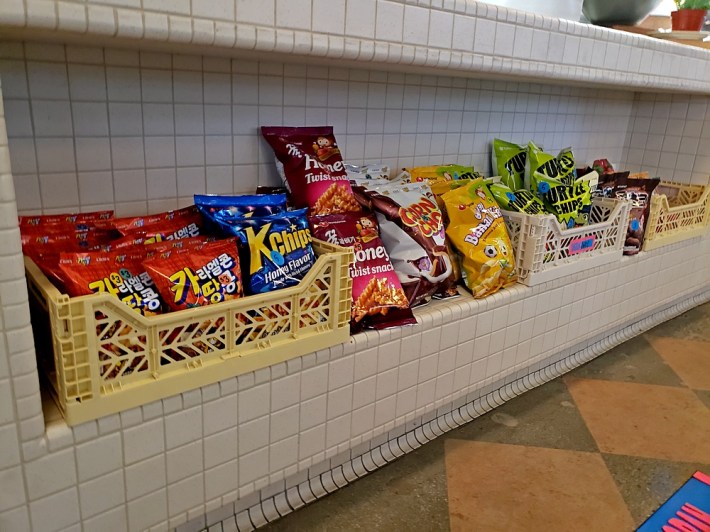
A trip to try the full spectrum of Oaxaca’s seven celebrated moles at Yu Ne Nisa Restaurante in the Reforma neighborhood made them fall in love with the dish. They quickly signed up for a class with owner Doña Ofelia Toledo Bacha Pineda, to glean some wisdom from her more than 40 years of professional cooking experience.
“We were so in love with this mole,” Kat tells L.A. TACO. “We really fell in love with Oaxacan food in general.”
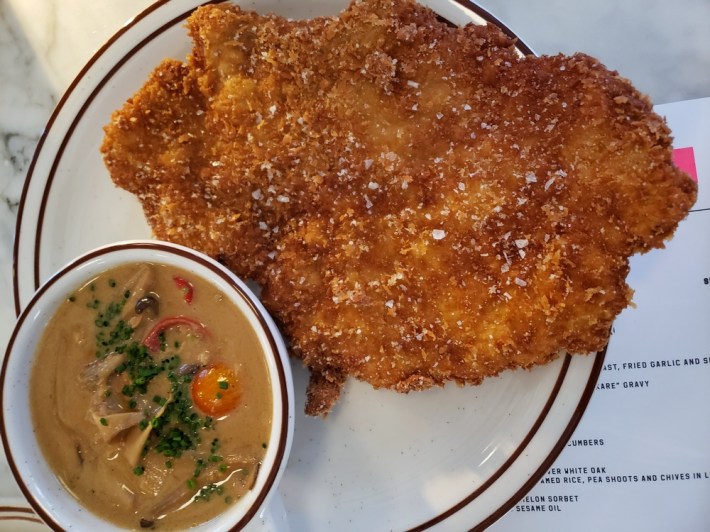
Yangban's menus are drawn from the chefs’ own biographies, memories, and travels. Kat’s heritage is Korean, though she was raised in upstate New York by an Irish-Catholic mom and Jewish-German pops, elucidating some of the influences behind such dishes as their congee pot pie, fried abalone sandwiches, white oak-grilled galbi, and bone-in heritage pork chop katsu served with wild mushroom gravy.
Like many in the U.S., the two grew up steeped in multiple cultures and have a menu to reflect this, which happens to dovetail perfectly into the diverse manner in which Angelenos like to eat.
They were yet to do much with what Doña Ofelia had taught them. Then came a happy accident. Trying to make a barbecue sauce out of the fermented Korean roasted black bean paste they both adore, they noticed the results bore many mole-like flavors and directed their focus towards making their own version that expresses the restaurant's intentions.
While utilizing techniques and knowledge they’d learned in Oaxaca, the two skipped chocolate completely as an ingredient and based the dish on the roasted black bean paste, trying to tie tradition into something that was original, delicious, and craveable.
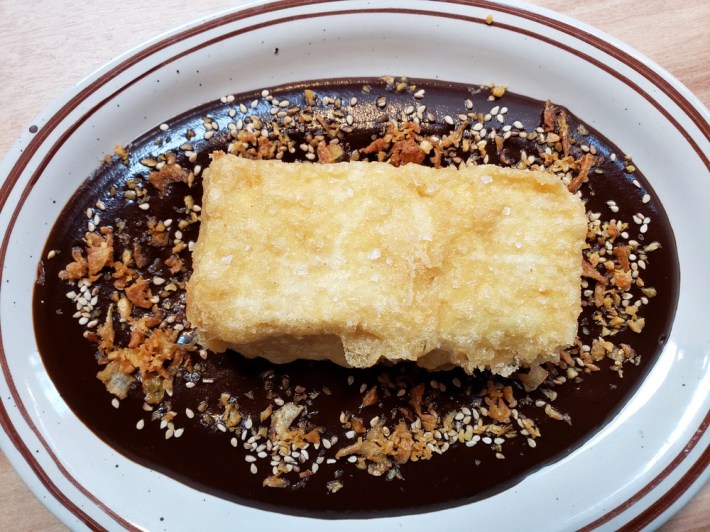
The mole starts off on a tangy note, which cedes to deep umami in a flavor almost chamoy-like, followed by the strong shriek of chile-laden heat and a discernibly sharp tug of war between intense spice, high acidity, and something akin to a salted caramel sweetness.
These notes expand to a beautifully balanced, intricately layered kaleidoscope of interwoven flavors, the black beans maintaining the balancing pole in its tightrope act. Sesame, roasted nuts, soy, cinnamon, sweet fruits, ginger, and chile occasionally dare to poke their heads out of the alloy, but like any strong mole, their characters ultimately merge into one alluring new whole.
The texture of the mole is appropriately thick to confirm its moleness, though still soft and silky, a little like the liquid bean concentrate that stiffens on the side of the pot. Within its umber pool jiggles a fat, rectangular lobe of fried tofu from Gardena’s esteemed Meiji Tofu, encased in a light blonde shell of starch-dredged batter.
Kat estimates “about 20 ingredients” go into Yangban’s $26 mole. These include traditional elements learned from Ofelia, such as peanuts, almonds, onion, garlic, raisins, bay leaf, brown sugar, ground tomatoes, black pepper, dried chile chipotle, chipotles en adobo, and chile negro.
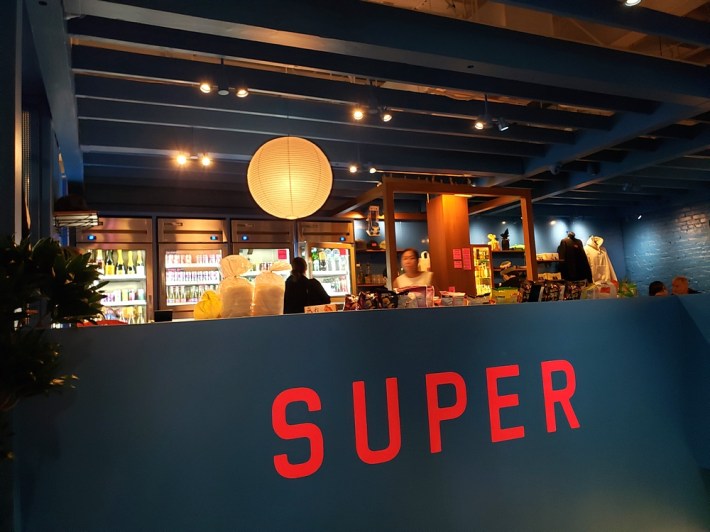
Less traditional elements that make the mole more of Yangban’s own dish, in addition to the black beans, include Asian pear, roasted sesame oil, a little soy sauce, and the Korean syrup known maesil-cheong, extracted from unripened plums fermented in sugar, which is our prime suspect in those tangy, chamoy-like top notes.
“We try to do it pretty traditionally from the way we learned it,” Kat tells us. “But for something that’s still unique. That we feel taste-wise has some integrity. Where we weren’t totally taking someone’s beautiful, cultural mole and destroying it by irresponsibly adding a bunch of sesame oil or something. A really umami, rich sauce that doesn’t punch you in the face that this is an ‘Asian version” of it."
The couple had been wanting to showcase Meiji Tofu’s products on their menu for a while, to support a small business they really respect, which adheres to traditional practices and doesn't use preservatives or overproduce. By rounding out the mole’s flavors with roasted black beans instead of chocolate, they’d also landed on a dish that vegans could enjoy.
“Obviously, sopping mole up with tortillas or rice is amazing,” Kat says. “You want something of a blank canvas that just really accepts the sauce, so tofu makes total sense. Even though we felt it doesn’t have to be vegan, we thought it’d be nice a way to honor [Meiji’s] products.”
Hong says customers have so far been feeling the mole, which was recently introduced on Yangban’s new summer menu.
With the momentary exception of one guest.
“I think it’s something people are curious about but also would like to find a way to not like it,” she says with a laugh. “I had one customer who is Mexican, loves mole, and he was eating with an Asian woman. She said, ‘I love it. It’s amazing.’ And the guy was like, ‘I like it. It’s okay. But I like real mole better.’”
Kat continues, “Then when I told him the story of our travels to Oaxaca and that we were really trying to do right by the mole, and it’s from a real-life experience that was truly influential in the way we cook, he was like, ‘that’s really cool. You know what? I do love this.’”
Yangban Society ~ 712 S. Santa Fe Ave., Los Angeles, CA 90021. Closest Metro lines and stop: Bus Lines 60 and 62- "7th/Santa Fe."
